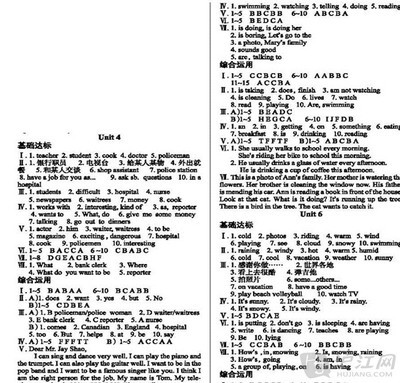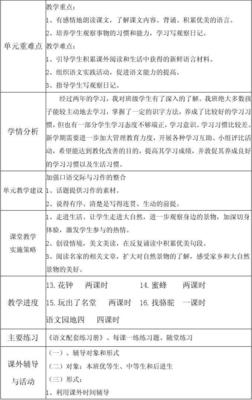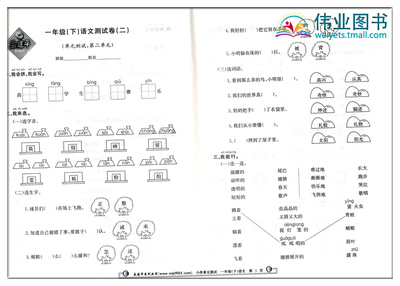Text comprehension
I. B II.1. T; 2. F; 3.T; 4. T; 5. T.
III.
1.“snail mail”.
2. “an essential stepping stone on the road to success”.
3. “the profound relationship between language and culture thatlies at the heart of society”.
4. “the means to shape our views of the world”.
5. “to negotiate the boundaries between languages and tocompromise in translation”.
6. “to use linguistic skills, to think differently, to enterinto another culture’s mentality and to shape languageaccordingly”.
IV.
1. with convenient ways to reach any part of the world.
2. It seems that everyone is able to always get in touch withanyone else if he or she can afford to.
3. is the most important to society.
4. a fundamental skill in today’s world, where differentcultures interact.
5. are finding ways to interrelate different cultures.
Structural analysis of the text
1. The last sentence of the 3rd paragraph: “Most fundamental isthe profound relationship between language and culture that lies atthe heart of society and one that we overlook at our peril.”
2. Paragraph 4: The lack of an exact counterpart of the Englishword “homesickness” in other languages such as Italian, Portuguese,and German.
Paragraph 5: The problem of untranslatability which the earlyBible translators encountered.
Paragraph 6: English and Welsh speakers make adjustmentsregarding the color spectrum in the grey / green / blue / brownrange; The word “democracy” means completely different things indifferent contexts; the flat breads of Central Asia are a long wayaway from Mother’s Pride white sliced toasties, yet the word“bread” has to serve for both.
Part One. Vocabulary Analysis
I. Phrase practice
1. provided =as long as 假如,倘若
need never be out of touch =can never fail tobe reached 从不会失去联系
2. regardless of =no matter 不管,不顾
3. overlook at our peril =fail to notice at great risk忽视……的危险或风险
4. hovers somewhere in and around all those words =may bedescribed by these words to varying degrees
5. hit the problem of untranslatability head-on = were directlyconfronted with the problem that something in one language cannotbe rendered into another
II.
1. stepping stone; 2. at their peril; 3. serve; 4. mentality; 5.staple; 6. facilitating; 7. messaging; 8. hybrid.
III. Word derivation
Fill in the blanks with the appropriate forms of the givenwords.
1. The country is trying to move from a centrally plannedeconomy (economic) to one basically geared to the needs ofthe market.
2. There are no good roads in the area, so most of the ranchesare only accessible (access) by jeep or other off-roadvehicles.
3. The two approaches are so fundamentally (fundamental)different that it is surprising that they have both beensuccessful.
4. They spent much time comforting the homesick(homesickness) children at the beginning of the summer camp.
5. We are looking for an experienced journalist to join the newsteams. The salary is negotiable (negotiate).
6. The amount of any of these ingredients can be adjusted(adjustment) according to your taste.
7. The remoteness (remote) of the house was the onlything that made them hesitate about buying it.
8. He parked the car and smiled at her, complacently(complacent) assuming he had passed the test.
1. economic a. 经济学的;经济的;有利可图的
economical a.节俭的;经济的,合算的
economics n. 经济学
economist n. 经济学家
economy n. 节约;经济
2. access n. 通道,入口
accessible a.可得到的;易接近的,可进入的
accessibility n. 可以得到;易接近
3. fundamental a. 基本的,根本的;重要的
fundamentalism n.原教旨主义
fundamentalist n.信奉正统派基督教的人
fundamentally ad.从根本上;基本地
4. homesick a. 想家的
homesickness n.乡愁,思乡病
5. negotiate v. 谈判,协商,交涉
negotiable a.可磋商的,可协商的
negotiation n. 谈判,协商
negotiator n. 磋商者,交涉者
6. adjust v. 调整,调节;使适应
adjustable a. 可调整的
adjustment n. 调整
7. remote a. 偏僻的,遥远的,远程的
remoteness n.远离,远隔,偏僻
8. complacent a. 满足的,自满的,得意的
complacentlyad. 满足地,自满地,沾沾自喜地
complacency n.自满,沾沾自喜
IV.
1. D; 2. C; 3.A; 4. D; 5.B; 6. A; 7.B; 8. C.
V. Synonym / Antonym
Give a synonym or an antonym of the word underlined in eachsentence in the sense it is used.
1. We live in an age of easy access to the rest of theworld.
Synonym: time, era, epoch
2. Conferences and business meetings around the globe areheld in English, regardless of whether anyone present is a nativeEnglish speaker.
Synonym: meetings
3. English has simply become the language that facilitatescommunication, and for many people learning English is anessential stepping stone on the road to success.
Synonym: basic, fundamental
4. Different cultures are not simply groups of people who labelthe world differently; languages give us the means to shapeour views of the world and languages are different from oneanother.

Antonym: misshape
5. Inevitably, the spread of English means that millionsof people are adding another language to their own and are learninghow to negotiate cultural and linguistic differences.
Synonym: unavoidably
6. Why does the rise of English as a global language causefeelings of uneasiness for some of us?
Synonym: worry, concern, anxiety
7. But even as more people become multilingual, so nativeEnglish speakers are losing out, for they are becoming ever moremonolingual, and hence increasingly unaware of the differencesbetween cultures that languages reveal.
Antonym: hide, conceal
4 Prefix
Write in each space one word that has the same prefix asunderlined in the given word.
1.unreliableunbelievable
2.impatientimperfect
3. disapprovaldisagreement
4.mistakemisplace
5.maltreatmalfunction
6.enrichenable
7. surmountsurpass
8.subordinatesubmarine
1. Explanation:
un- : not or the opposite of
e.g. unable, unhappy, unknown
2. Explanation:
in- / il- / im- / ir- : not or the opposite of
e.g. impolite, infinite,illogical, irrelevance
3. Explanation:
dis- : not or the opposite of
e.g. dishonest, disadvantage, disappear
4. Explanation:
mis- : bad or wrong
e.g. misinterpret, misbehavior, mischance, misconceive
5. Explanation:
mal- : bad or not correct
e.g. malpractice, malodorous, malformation
6. Explanation:
en- / em-: to cause to be; to put into the thing or condition mentioned
e.g. encase, empower, enlarge, embolden,enchant
7. Explanation:
sur- : beyond
e.g. surcharge, surplus, surprise, surmise
8. Explanation:
sub- : less than; under or below
e.g. subdivision, subconscious, subcontinent, subculture
Part Two. Grammar Exercises
1. the simple present and the present progressive
Simple present is used for activities that are long-lastinghabits.
Present progressive is used for activitiesthat occur at the moment of speaking activities.
The present continuous with words such as “always” or“constantly” expresses the idea that something irritating orshocking often happens.
e. g. She is always coming to class late.
He is constantly talking. I wish he would shutup.
Speakers use the present continuous to indicate that somethingwill or will not happen in the near future.
e. g. I am not going to the party tonight.
Is he visiting his parents next weekend?
I. Complete the following sentences with the correct verbforms.
1. She’s a dietician — she __helps__ (help) people to choose theright food.
2. hope; are enjoying; sunbathe; go; are going.
3. is being.
4. The professor ____is typing____ (type) his own letters whilehis secretary is ill.
5. am not eating.
6. I __am reading___ (read) an interesting book at the moment.I’ll lend it to you when I’ve finished it.
7. are always leaving.
8. go; belongs; wants; is using.
9. is boiling.
10. is putting; is rewiring; is building.
II.
1. is passing = passes; is shooting = shoots.
2. OK.
3. are crying.
4. OK.
5. am knowing = know.
6. am gathering = gather.
7. work = am working.
8. do =are; sneeze = sneezing.
III.
thank; are dispatching; regret; have; are contacting; hear;enclose/are enclosing; decide; have; are listed; regret; hope;enclose/are enclosing.
IV.
1. a. The speaker is complaining; b. The speaker gives afact.
2. a. am considering; b. have the opinion.
3. a. It suggests a permanent nature; b. It suggests a temporarybehaviour.
4. a. is taking care of; b. have no objection to.
5. a. am waiting for; b. believe.
6. a. am waiting for; b. believe.
2. Position of adjectives
Unlike adverbs,which often seem capable of popping up almost anywhere in asentence, adjectives nearly always appear immediately before thenoun or noun phrase that they modify. Sometimes they appear in astring of adjectives, and when they do, they appear in a set orderaccording to category.
The categories in the following table can bedescribed as follows:
A. Determiners — articles and other limiters.
B. Observation — postdeterminers and limiter adjectives (e.g. areal hero, a perfect idiot) and adjectives subject to subjectivemeasure (e.g. beautiful, interesting)
C. Size and Shape — adjectives subject to objective measure(e.g. wealthy, large, round)
D. Age — adjectives denoting age (e.g. young, old, new,ancient)
E. Color — adjectives denoting color (e.g. red, black, pale)
F. Origin — denominal adjectives denoting source of noun (e.g.French, American, Canadian)
G. Material — denominal adjectives denoting what something ismade of (e.g. woolen, metallic, wooden)
F. Qualifier — final limiter, often regarded as part of the noun(e.g. rocking chair, hunting cabin, passenger car, book cover)
Rewrite the following descriptions putting the adjectives in thecorrect order.
1. a large pair of red woolen socks
2. a white car German new powerful
a powerful new white Germancar
3. a small grey rectangular Japanese radio
4. a concrete modern office building big
a big modern concreteoffice building
5. a medium size French stainless steel saucepan
6. a superb medieval rose-shaped stained-glass window
7. a prominent red triangular road sign
8. a dog black and tiny Chinese white
a tiny black and whiteChinese dog
VI. given that…
Part Three Translationexercises
I.
1.因此,你也许会问,为什么还有人会对这些绝妙的发展顾虑重重?为什么英语成为世界语言会让一部分人惴惴不安?
2.不同的文化并不仅仅是给世界贴上不同标签的人群;语言给了我们塑造世界观的工具,而语言又是不一样的。
3.当千百万人在学习文化沟通的时候,英语国家却越来越沾沾自喜,以为懂得英语就足够了,因而削减了外语课程。
4.最能推动这一进程的不一定是那些掌握了最新技术、拥有最先进手机的人,而是那些能够理解众多不同语言的言内之意、言下之意以及言外之意的人。
II.
1.Children may swim here provided that they areaccompanied by adults.
2.This American journalist made a fool of himselfover his remarks about China, because he’s been out of touch withwhat’s been happening in the country in the past three decades.
3.Every person has the right to education,regardless of his or her family background, sex and age.
4.因特网的发明尽管造成了一些问题,但是却极大地方便了我们生活中几乎所有方面,包括教育、医疗和贸易等。(facilitate)
Theinvention of the Internet, despite the fact that it has given riseto some problems, has greatly facilitated almost every aspect ofour life, including education, medicine, and business.
5.您计划出国度假的时候,千万不要忽略购买旅行保险;否则万一发生什么意外,您也许会有很大的麻烦。(overlook)
Never overlook your travel insurance when you areplanning to spend your holiday abroad; otherwise you might findyourself in great trouble if any accident should occur.
6.在那部电影里,那个亿万富翁面临着两难选择——和妻子离婚,让她分走他半个金融帝国,或者冒着被警方发现的危险把她谋杀掉。(facedwith)
In the movie that billionaire was faced with adilemma — either divorces his wife, who would then carve out halfof his financial empire, or murders her at the risk of being foundout by the police.
7.As the husband lost his job in the financial crisis, the newcouple had to cut down on a lot of things—furniture, clothes,records, books, and so on.
8.三十多年前,文革刚刚结束,邓小平告诉全国人民:中国唯一的出路就是改革开放。(lie in)
Over thirty years ago, right after the Cultural Revolution, DengXiaoping told the people that the only way out lay in reform andopening up to the outside world.
IV Exercises for integratedskills
1. Dictation
The main reason for the widespread demand for English / is itspresent-day importance as a world language. / Besides serving theinfinite needs of its native speakers, / English is a language / inwhich some of the most important works in science, technology, andother fields are being produced, / and not always by nativespeakers. / It is a language of wider communication for a number ofdeveloping countries, / especially former British colonies. / Manyof these countries have multi-lingual populations / and need alanguage for internal communication / in such matters asgovernment, commerce, industry, law and education / as well as forinternational communication / and for access to the scientific andtechnological developments in the West.
2. Cloze
Languages are marvelously complex and wonderfully complicatedorgans of culture: they embodythe quickest and the most efficient means of communicating withintheir respective culture. To learn a foreignlanguage is to learn (1) another culture. In the words of a poet and philosopher, “As (2) manylanguages as one speaks, so many lives one lives.” A culture andits (3) language are as inseparable as brain and body; (4)while one is part of theother, neither can function (5) without the other. Inlearning a foreign language, the best (6)beginning is with the non-verbal linguistic elements of thelanguage, its (7) gestures, its bodylanguage. Eye contact is extremely important in English. Direct eyecontact (8) leads tounderstanding, or, as the English maxim has it, seeing eye-to-eye.We can (9) never see eye-to-eye with a native speaker ofEnglish (10) until we have learned to look directly into hiseyes.
VI Writing Practice
Paragraph development — Comparison and Contrast
Comparison-and-contrast is a method of development that willessentially compare and / or contrast. Comparison brings similarthings together for examination, to see how they are alike.Contrast, on the contrary, emphasizes their differences.
There are three major ways to organize a comparison-and-contrastparagraph:
1. We first present the differences and then the similarities orthe other way round. What is to be emphasized (the differences orthe similarities) almost always comes later.
2. We make a parallel-order comparison, where we discuss firstone subject, then the other:
1) All of subject A, point by point;
2) All of subject B, point by point, so that it parallels thepoints about A.
We will finish our whole discussion of the first person (place,or thing) at one time. Then, in discussing the second person(place, or thing), we will take up the major qualities in exactlythe same order as in discussing the first one. In this case, thecomparison often takes two paragraphs, instead of one.
3. We make a point-by-point comparison. We discuss one aspect ofboth subjects, then another aspect of both subjects:
1) Aspect one of subjects A and B;
2) Aspect two of subjects A and B.
…
Exercises: Now write two separate paragraphs based on thefollowing two topic sentences with the comparison-and-contraststrategy. The point-by-point method is recommended.
1. I prefer South Korean love stories on TV to the Chineseones.
Ideas for reference:
feasibility of love
smoothness of love
fun of love
Sample:
I prefer South Korean love stories on TV to the Chinese ones.Korean love soaps never fail to convey the important message thatlove is somewhere ahead waiting for you, in spite of your humbleorigin, weight problem, or unladylike manners. In contrast, love onChinese TV is, more often than not, an unworthy adventure thatbrings pain rather than joy. Lovebirds in Korea seem always to beso much luckier than those in China, where people in love oftenfind themselves caught in a hostile financial or socialenvironment. Unlike those Chinese youths who are seriously andgravely wondering about the purpose of life and love for most ofthe time, those Korean girls and boys always have so many witty,funny, and amazing verbal blows to hurl at each other; I alwayscannot help laughing out at them. In one word, love on Korean TV isa wonderful medicine to cure everything, while on Chinese TV loveis a disease from which one suffers inevitably sometime in one’scourse of life.
2. Riding a bicycle is preferable to driving a car.
Ideas for reference:
health
finance
global warming
Sample:
Riding a bicycle is preferable to driving a car. First of all,bicycling is healthier. It develops balance, coordination, andstrength, while at the same time toning the body, burning calories,strengthening bones. Therefore, it helps building up our body. Incontrast, resulting from a lack of exercise, car drivers are oftenfaced with such health problems as heart disease, addictions, drugdependency, overweight, obesity and diabetes. Besides, cyclinghelps improve personal finances. Needing no fuel, no insurance andminimal maintenance, a good bicycle costs about 2% to 3% as much asa car. What is more, cycling suggests slowed pace of globalwarming. More autos on the road mean more carbon emissions that aredriving global warming while more bicycles increase the time wehave to prepare for major climatic changes so as to avoid refugeeand food crises.
 爱华网
爱华网



